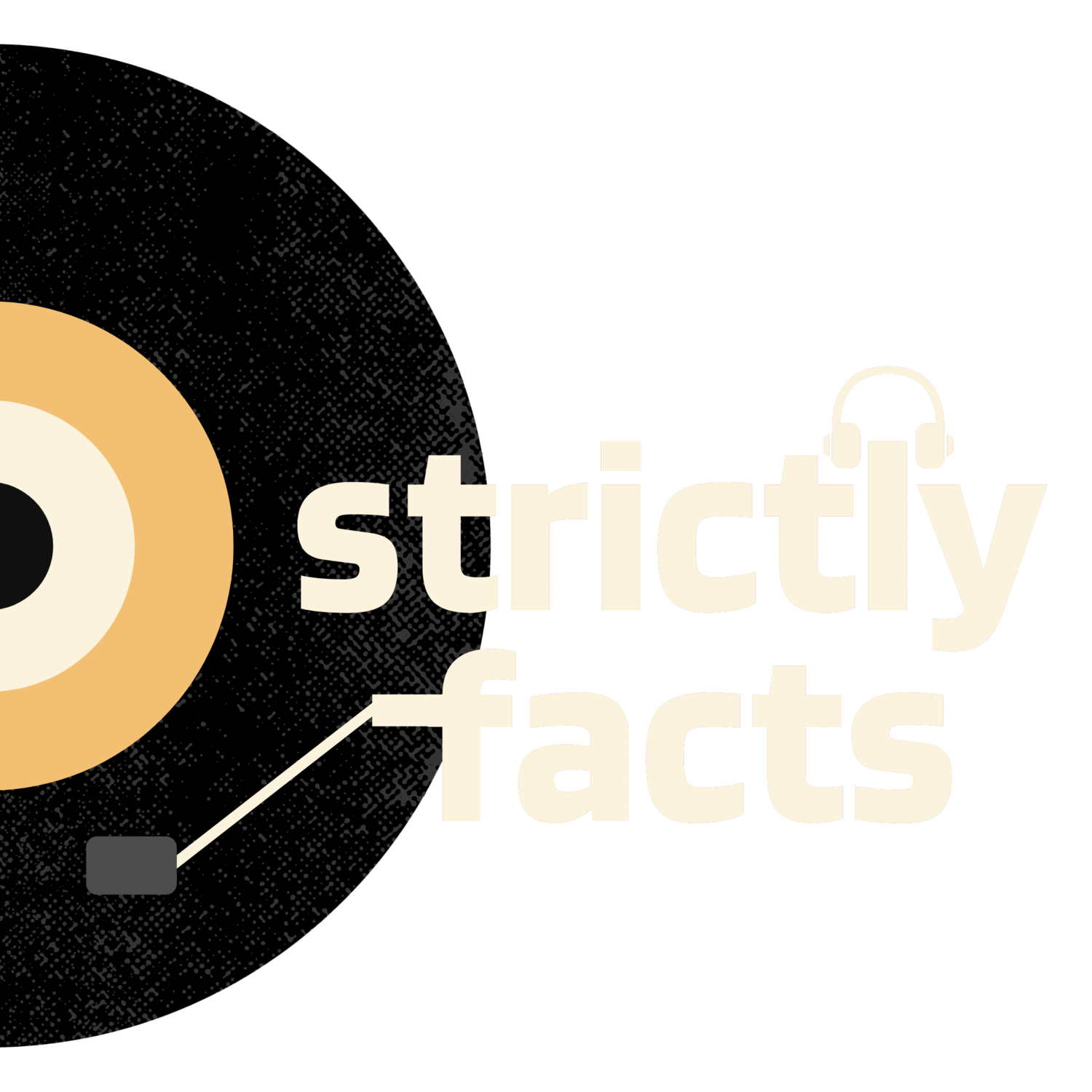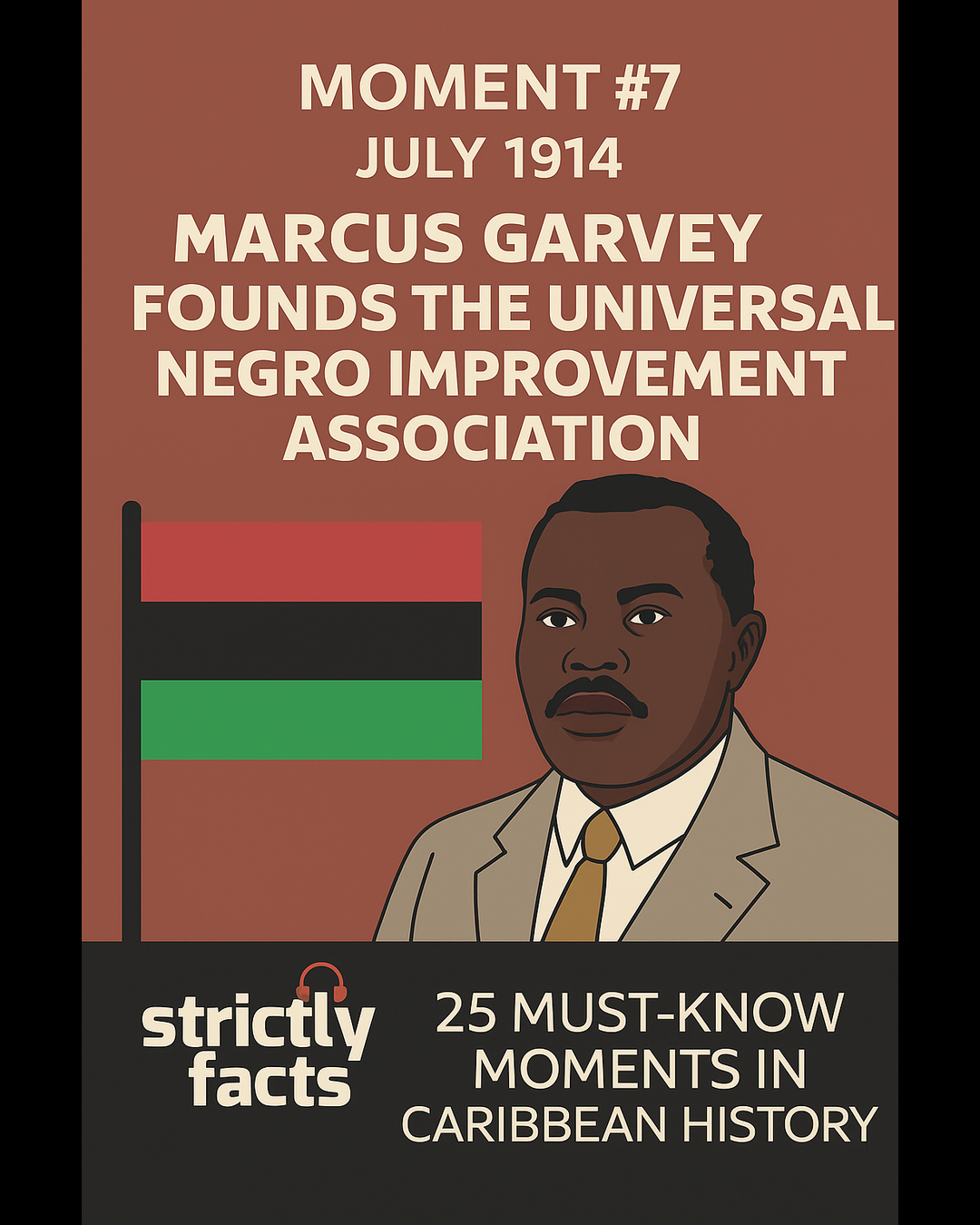25 Must-Know Moments in Caribbean History #6-10
Moment #6
🇩🇲 On July 21, 1980, Dame Mary Eugenia Charles made history when she became the first woman elected as head of government in the Caribbean — and one of the earliest in the Americas.
The "Iron Lady of the Caribbean” including being the nation's first female lawyer. Charles led Dominica for 15 years, becoming the longest-serving female prime minister in Caribbean history. She was also the nation's first
Her legacy is a testament to Caribbean women’s leadership on the global stage.
#CaribbeanHistory #Dominica #EugeniaCharles #CaribbeanWomensHistory #CaribbeanAmericanHeritageMonth7
Moment #7
🇯🇲 In July 1914, Jamaican-born activist and visionary Marcus Mosiah Garvey founded the Universal Negro Improvement Association (UNIA) in Kingston. The UNIA would go on to become a global Black nationalist movement that shaped the 20th century and beyond.
Rooted in the principles of Black pride, economic self-reliance, and Pan-African unity, the UNIA grew into the largest mass movement of people of African descent in history with over 1900 divisions across the world.
Garvey’s ideas of Black empowerment, global solidarity, and repatriation to Africa laid the groundwork for later movements including Rastafari, Pan-Africanism, Black Power, and civil rights struggles across the diaspora and continues to inspire generations across the world.
“A people without the knowledge of their past history, origin and culture is like a tree without roots.” — Marcus Garvey
#MarcusGarvey #CaribbeanHistory #UNIA #BlackNationalism #PanAfricanism #Jamaica #25MustKnowMoments #Garveyism #BlackPride #CaribbeanAmericanHeritageMonth
Moment #8
🇬🇾 Few figures in Caribbean history have had the intellectual reach and grassroots impact of Walter Rodney. A brilliant historian, Pan-Africanist, and activist, Rodney is best remembered for his landmark text "How Europe Underdeveloped Africa, which dismantled colonial narratives and exposed the mechanisms of global inequality.
Rodney’s life was dedicated to educating, organizing, and empowering working-class people across the Caribbean and Africa. Whether challenging colonial elitism at the University of the West Indies or building the Working People’s Alliance in Guyana, he used scholarship as a weapon for liberation.
His assassination in 1980 at the age of 38 was a devastating blow to Caribbean and global resistance movements — but his vision lives on in ongoing struggles for equity, unity, and Black self-determination.
"If there is to be any proving of our humanity it must be through revolutionary means." – Walter Rodney in "The Groundings with My Brothers"
#CaribbeanHistory #GuyaneseHistory #CaribbeanAmericanHeritageMonth
Moment #9
🎥🇧🇸 On April 13, 1964, Bahamian-American Sidney Poitier made global headlines as the first Black man and first Bahamian to win the Academy Award for Best Actor, awarded for his powerful performance in "Lilies of the Field."
Born in Miami to Bahamian parents and raised in the Bahamas, Poitier remained deeply connected to his Caribbean roots. In fact, he would go on to serve his homeland as Bahamian Ambassador to Japan from 1997 to 2007, as well as Ambassador to UNESCO. His diplomatic service reflected the same grace, dignity, and integrity that defined his cinematic legacy.
#CaribbeanHistory #BahamianHistory #DiasporaIcons #FilmHistory #CaribbeanAmericanHeritageMonth
Moment #10
JThe 2017 hurricane season was one of the most devastating in recent history. Hurricanes Irma and Maria ravaged the Caribbean, leaving behind widespread destruction across the region. Irma, a Category 5 storm, made landfall in early September, and Maria followed just two weeks later, causing catastrophic damage to Puerto Rico, making landfall as a Category 4 storm.
However, in the face of such tragedy, the Caribbean islands—especially Puerto Rico and the USVI—showed incredible solidarity. Despite their own challenges, these islands reached out to each other, offering support, supplies, and solidarity in the aftermath of the storms. Communities across the region rallied together to share resources, with aid flowing from one island to another as people worked tirelessly to rebuild.
Though the hurricanes highlighted our vulnerabilities to natural disasters, we honor the spirit of resilience, unity, and support that continues to define the Caribbean. This moment serves as a reminder of the strength of our communities when they come together in the face of adversity.






